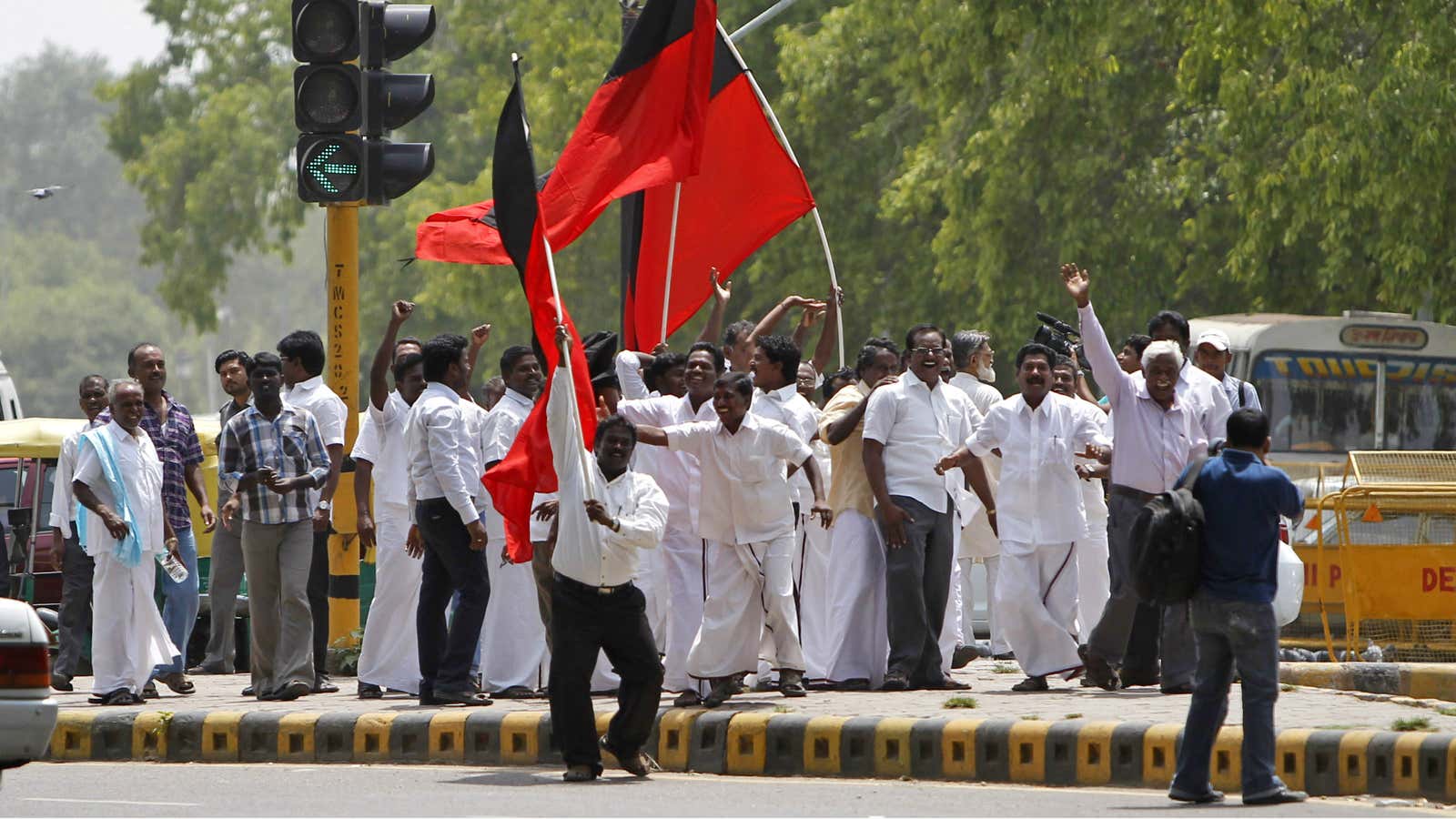Today was supposed to be a good day for the Indian economy. A much-awaited monetary policy announcement—an expected cut in key interest rates—was to buoy confidence and help steer the country back onto a fast-growth track. But three things happened to dash those hopes—and they are broader indicators of the challenge ahead.
Lower rates can only do so much
When the Indian markets opened for trade this morning, the driving force was expected to be the central bank’s announcement of credit policy. With the finance minister’s latest budget pegging next year’s GDP growth between 6.1 and 6.7%, there was hope that the Reserve Bank of India (RBI) would help ease liquidity by cutting rates. But inflation is still high and in the past RBI governor D. Subbarao has preferred to control inflation even at a cost of lowered growth. He didn’t disappoint the markets this time around though and announced a cut of 0.25% in key interest rates.
Celebrations, however, were muted. Crisil, India’s leading rating agency, expressed skepticism about how much the rate cut will help the investment climate in the country, comparing the move to oiling a squeaky wheel. “Lower interest rates can effectively oil the economy only when other major causes for the squeaking wheel are fixed. This involves sorting out issues such as delays in land acquisition, forest & environmental clearances, and supply of raw materials that continue to drag down implementation of projects,” it said in a statement.
Macroeconomic indicators suggest the finance minister’s growth targets will be hard to be met. Already this year, India has had to revise its growth projections downward from 7.6% to 5%. While the worst may be over for the economy, there are concerns that the current atmosphere does not lend a lot of confidence to new investment.
The coalition is crumbling
The credit policy announcement passed without event, but minutes later a key ally of the Congress-led coalition government withdrew its support—plunging the government into a crisis. For much of the day, politicians were in damage control mode. Finance Minister P. Chidamabaram insisted there was no crisis. “Let me assure everyone that the stability of the government and the continuation of the government are not an issue. The government is absolutely stable and enjoys majority in the Lok Sabha,” he said, referring to one of the houses of parliament. Despite this assurance, stock markets plunged. The Bombay Stock Exchange’s main index, Sensex, ended the day down 1.5%.
Even if the current government is safe for now, it is more vulnerable to the whims of other partners in the coalition. “This could restrict the ability of the government to follow through its fiscal consolidation target as it caves in to the demands of its partners,” said Abheek Barua, chief economist of HDFC Bank.
A large part of the crisis in the economy and slowing growth has been, rightly, attributed the government’s “policy paralysis.” One factor is the limitations of coalition politics–the government has been struggling with allies who are not on board to push through some much necessary but non-populist measures. Today’s event further exacerbates this. The buzz in the markets is that no major economic measures will be pushed until general elections in 2014. And after today, general elections might come first. This political uncertainty only adds to the grayness of the investment climate.
And a corruption scandal into the mix
A special court investigating corruption in the allotment of 2G spectrum to companies has summoned Sunil Mittal, the chairman of India’s largest mobile operator, Airtel. The former heads of Vodafone’s joint venture in India–Ravi Kant Ruia and Aseem Ghosh–have also been summoned. Airtel shares plunged 8% on the news. In the last couple of years, corruption scandals have plagued several industries where the government is involved in allocationg or auctioning rights. Last week, India’s central investigative agency submitted a report to the Supreme Court which says that the government made coal block allocations without verifying the credentials of the company. Now, it is quite likely that all coal block allocations over the last two years will be canceled and the process repeated.
But really, you say the economy is doing just fine? Indeed, none of these factors helps in building consumer or investor confidence. The stock markets may have had a good run in the first seven weeks of the year, but that was only the result of global liquidity and not a reflection of the health of the Indian economy. That phase is over. Right now, anyone invested in the Indian economy is jittery. And rightly so.
